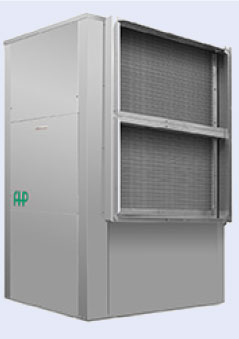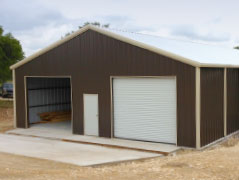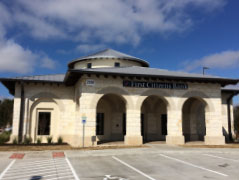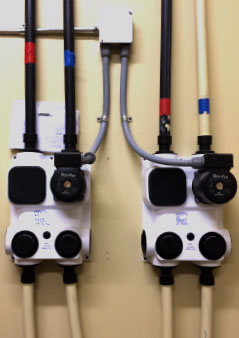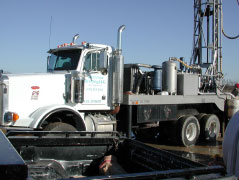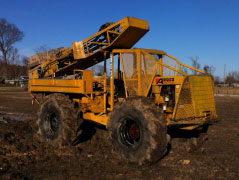Commercial Applications
Geothermal is the most energy efficient, environmentally clean and cost-effective space conditioning system available, according to the Environmental Protection Agency (EPA).
The EPA found that geothermal heat pumps can reduce energy consumption and corresponding emissions by over 40% compared to air source heat pumps and by over 70% compared to electric resistance heating with standard air-conditioning equipment. Combining geothermal with other energy efficient measures such as window tinting or replacement lighting or insulation upgrades can increase these savings even further.
Geothermal heat pumps use the Earth's energy storage capabilities to heat and cool buildings, and to provide hot water. The earth is a huge energy storage device that absorbs 47% of the sun's energy more than 500 times the energy that mankind needs every year in the form of clean, renewable energy. Geothermal heat pumps take this heat during the heating season at an efficiency approaching or exceeding 400% and return it during the cooling season.
They are on average of 48% more efficient than the most modern gas furnaces. In fact, today's best geothermal systems outperform the best gas technology by an average of 36% in heating mode and 43% in cooling mode.
Surveys by utility companies indicate a higher level of consumer satisfaction for geothermal heat pumps than for conventional systems with polls consistently show that more than 95% of all geothermal heating and cooling customers would recommend geothermal to a family member or friend.
Geothermal heat pumps deliver savings to building owners of 30 to 70% in the heating mode and 20 to 50% in the cooling mode compared to conventional systems.
The biggest benefit of Geothermal Heat Pumps is that they use 25- 50% less electricity than conventional heating or cooling systems. This translates into a Geothermal Heat Pump using one unit of electricity to move three units of heat from the earth. According to a report by Oak Ridge National Laboratory, statistically valid findings show that the 4,003-unit Geothermal Heat Pump retrofit project at Fort Polk, Louisiana, will save 25.8 million kilowatt-hours (kWh) in a typical meteorological year, or 32.5% of the pre-retrofit whole-community electrical consumption. This translates to an average annual savings of 6,445 kWh per housing unit. In addition, 100% of the whole-community natural gas previously used for space air conditioning and water heating (260,000 therms) will be saved. In housing units that were all electric in the pre-retrofit period, the Geothermal Heat Pumps were found to save about 42% of the pre-retrofit electrical consumption for heating, cooling, and water heating. Vic, not sure if this is required, please advise.
Unlike other heating and cooling systems, a geothermal heat pump can provide free hot water. A device called a "Desuperheater transfers excess heat from the heat pump's compressor to the hot water tank. In the summer, hot water is provided free; in the winter, water-heating costs are cut by 50%.
While producing lower heating bills, geothermal heat pumps are quieter than conventional systems and improve humidity control. These features help explain why customer surveys regularly show high levels of user satisfaction, usually well over 90 percent.
Geothermal heat pump systems allow for design flexibility and can be installed in both new and retrofit situations. Because the hardware requires less space than that needed by conventional HVAC systems, the equipment rooms can be greatly scaled down in size, freeing space for productive use. And, geothermal heat pump systems usually use the existing ductwork in the building and provide simultaneous heating and cooling without the need for a four-pipe system.
The aboveground components of a Geothermal Heat Pump system are inside the building, sheltering the equipment both from weather-related damage and potential vandalism. Geothermal Heat Pump systems have average total maintenance costs ranging from 6 to 11 cents per square foot, or about one-third that of conventional systems. Because the workhorse part of the system the piping is underground or underwater there is little maintenance required. Occasional cleaning of the heat exchanger coils and regularly changing the air filters are about all the work necessary to keep the system in good running order.
To find out more about how you can reduce your monthly utility bills by up to 70% per month Contact us today for a free no obligation quote and advice or call 512 219 1465
